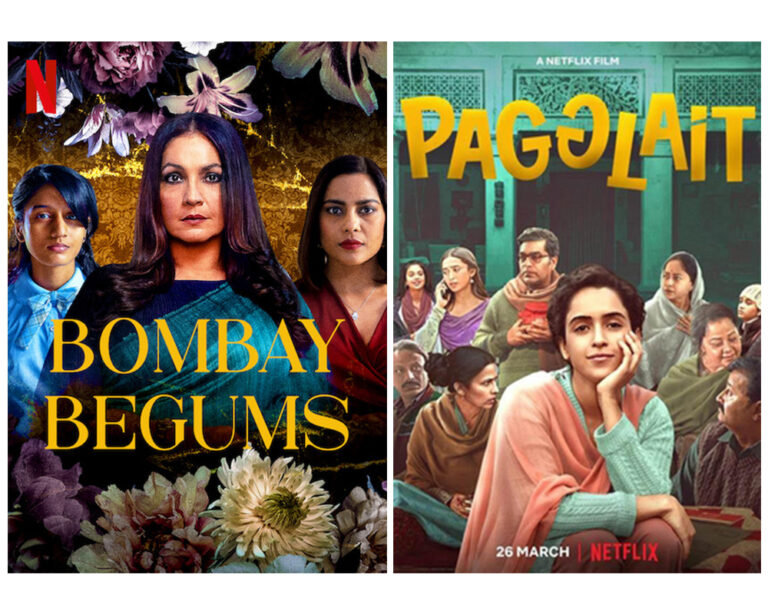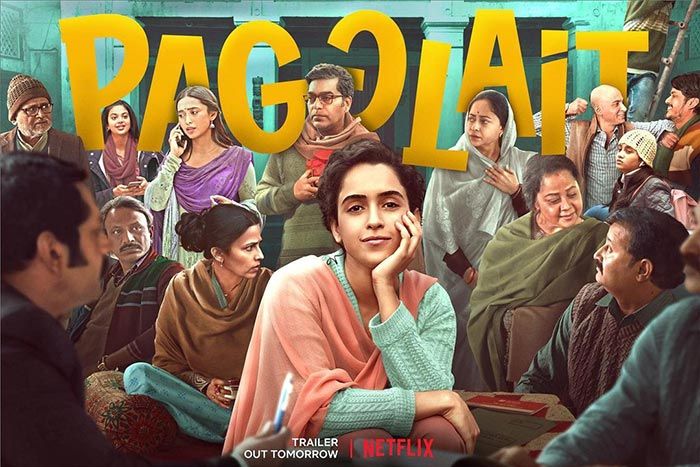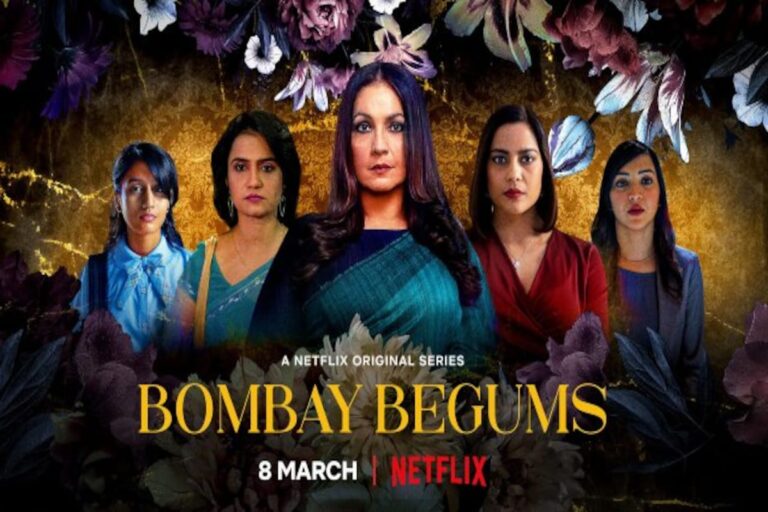
Media plays a dominant role in shaping our social construct – of which cinema is an important medium. What we choose to show is what the audience will consume – therefore making it imperative for directors to make conscious decisions when portraying the intricacies of societal relations on reel.
Of late, the trend within mainstream media has been changing – initiatives towards making conscious films which establish the woman’s identity independent from their male counterparts are on the rise.
Take for example, these three films/series released in the month of March:
‘Pagglait’:
Umesh Bist’s ‘Pagglait’, released on 26th March, is so brilliant that at certain times it makes you feel guilty for liking the film so much. In what has been a crafty reversal wherein most films start from birth and end in death, this film starts with death – but one person’s death is another person’s birth, or re-birth if one likes to be accurate.

In the early hour of the film, it is learnt that Sandhya (Sanya Malhotra) was in a loveless relationship with her deceased husband (Astik). Sandhya finds a photograph of another woman Aakansha within her husband’s personal belongings, which serves as evidence that perhaps Astik was having an affair – the reason for their distance.
However, unlike one would have imagined, the two do not fight – instead form a relation of mutual respect – perhaps a message of solidarity for women who combat similar problems every day. Throughout the film, Sandhya grows (perceived as madness by many). She is accorded with new confidence to challenge existing norms and culture within what is a pretty liberal, but still a conservative household.
The film’s choice for names too is something to reflect upon – Sandhya meaning twilight (could be either dawn, dark to light, or dusk, light to dark). Aakansha, the desire – wherein once the husband’s but later the wife’s. Astik (theist), ironically the one who passed away.
The film has many other characters – each contributing to the film in a unique manner, however, that journey of Sandhya – that is celebration right there. However, the celebration is a guilty pleasure for the viewer.
The director’s ability to make us feel guilty for supporting Sandhya – the widow who is eating chips/pani-pooris during a period of mourning – that is the power of the film – to put you out of your comfort zone.
Bombay Begums:
There are a lot of reviews, including some negative reviews for the series for their portrayal of drug abuse within children. However, the one that sticks is Udaya Bhatia‘s “‘Bombay Begums’, for all its flaws, gets #MeToo right“.

The series, directed by Alankrita Shrivastava and Bornila Chatterjee explores the lives of five women living in Mumbai – Rani (Queen), the determined CEO of Royal Bank of India, Fatima, an ambitious but conflicted woman who is climbing the corporate ladder faster than her male counterparts, Laxmi, a former dancer who has an opportunity ahead of her which requires her to abandon her values, Ayesha, a young employee at the bank who is exploring her sexuality as she learns the ways of the office and the city, and Shai, the young step daughter of Rani.
Throughout the series, the women are faced with their own challenges – each unique to the person, however, also collective in many ways, successfully clubbing the daily realities of women in Mumbai.
According to Udaya Bhatia for the Mint Lounge, “We’re shown—perhaps for the first time—a detailed picture of post-#MeToo life in corporate India, with the language of abuse now commonplace, the system still rising up to protect the powerful, and whisper networks instrumental in breaking the silence.”
Like Pagglait, the characters in the series are growing – a product of their own experiences. In Bombay Begums, each character, initially pitted against each other, is seen showing solidarity and support for each other – highlighting on the importance of it towards overturning a system which is rigged against them.
These two films/series, Pagglait and Bombay Begums, were successful in getting the women’s movement right – in their own subtle and direct ways.






